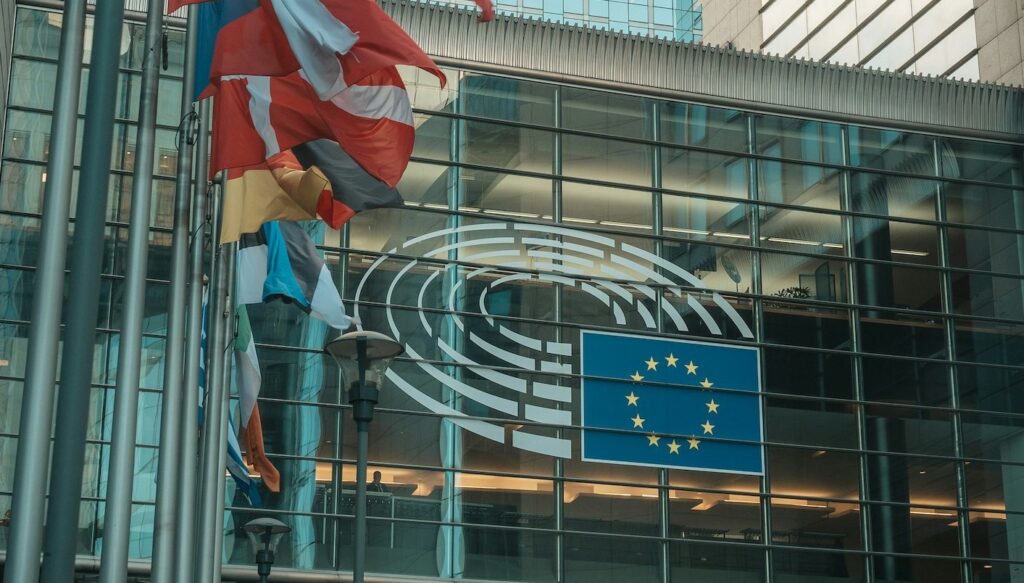When you hear the word lobbying, what comes to mind? Nothing very positive, is it? Kazakhgate, PubliFin, Samusocial and Brackegate all had something to do with it. And yet, more than ever, Belgian democracy needs a healthier relationship with lobbying. Here are three proposals to put lobbying in its rightful place.
There are countless headlines, books and documentaries devoted to the troubled relationship between political and economic power. Diamonds, pesticides, oil, agri-food, cars, public works, pharmaceuticals… they are all subject to the devious strategies of shadowy influencers.
In the process, public confidence in our political system is eroded further. As a result, Ecolo can condemn Maggie de Block as the “Minister for Lobbies” rather than the Minister for Health.
Where there is power, there is influence. And the democratic form of power is no exception. Far from always being suspect, the involvement of various players with the public authorities should help to improve public decision-making in an increasingly complex world.
How can we protect our personal data without talking to the web giants and consumer associations? How can we develop renewable energies without understanding the impact on Electrabel and the environment? Lobbying has an essential explanatory function. Especially in Belgium, where democracy is based on the culture of consensus. To ban lobbying, as some would like, is to deny the reality of Belgian politics and give up on managing complexity.
But let’s not be naive. Lobbying is never objective, of course, and it is vital to control it so as not to lose sight of the general interest. Have we found the recipe in Belgium? Nothing is less certain.
Taking transparency one step further
To date, there are no regulations directly governing the activities of lobbyists in Belgium. Parliamentary committees and codes of conduct have been set up, but they do not recognise lobbying in the strict sense of the term.
The Belgian Public Relations Consultancies Association (BPRCA) is therefore responsible for drawing up codes of ethics for its members. This is a welcome form of self-regulation, but it does not replace the legitimacy of the law.
The Federal Parliament has therefore decided to move forward on this issue. Overshadowed in the media by other issues such as pension reform and the migration crisis, the work of the “Political Renewal” group and an initial bill to create a register of lobbies have begun to recognise this activity.
However, citizens are likely to be disappointed. The proposed register of lobbies contains very little information (name, telephone number, company number). What is even more surprising is that the Federal Executive, which is the main instigator of legislation, would not be subject to this register and would continue to consult lobbies in the shadows.
The first priority, therefore, is to extend the register of lobbies to include relations with the Executive and to invite the legislator to indicate in the explanatory memorandum of the law the organisations whose advice he received during the drafting of the text. As the Federal Ethics Commission concluded in January, transparency is the key.
Transparency must (and can) be generalised: declaration of gifts as in the United States; declaration of ministers’ meetings with private players as for the European Commissioners; public sharing of the assets of elected representatives before and after their term of office as in France are a minimum.
Open up to collective intelligence
However, rules alone will not be enough to restore confidence. The second priority is to encourage a change of mentality among lobbyists themselves.
Participative engagement methods are multiplying everywhere, with the same objective: to listen better to citizens and all those who wish to contribute to public decision-making.
Lobbying should therefore draw inspiration from these approaches in order to be a force for proposals and not just for resistance. Defending particular interests as part of an inclusive approach is bound to develop. This is how the European paper lobby has transformed its vision of the future by organising a crowdsourcing competition open to citizens and industry.
Diversity, independence, decentralisation and aggregation
Third: public authorities and lobbies must invent new coalitions of players. The European Climate Foundation (ECF) has set up the Industry & Innovation initiative, which brings together entrepreneurs, professors, political decision-makers and representatives of civil society. It has also contributed to the creation of the Agora Energiewende, which brings together government, environmental associations, trade unions and industry to manage the energy transition in Germany.
Decision-makers have little time (and less and less legitimacy) to act. Such methods provide concrete solutions and greater legitimacy, by enabling what James Surowiecki emphasises in “The Wisdom of Crowds”: diversity and independence of participants and a mechanism for aggregating their preferences.
In Belgium, as elsewhere, the reconciliation between lobbying and democracy is complex but essential; at the risk of giving free rein to populists of all stripes and further weakening our democracies.
Originally published in L’Echo.
Authors: Pauline Tawil and Thomas Dechaineaux, with the support of Stephen Boucher





